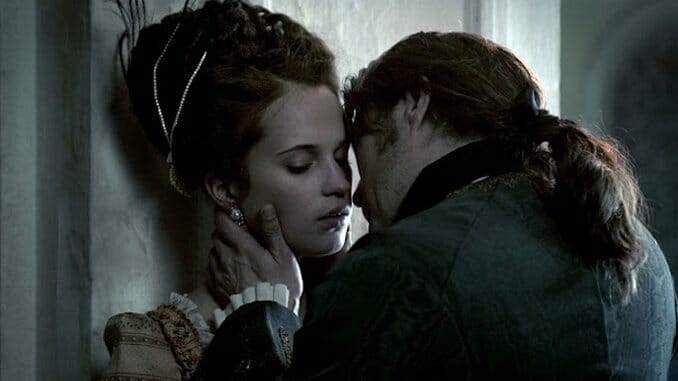A Royal Affair

If any royal affair deserves cinematic treatment, it’s this one. Fraught with illicit romance and political intrigue, the 18th-century love triangle among British Princess Caroline Mathilde (Alicia Vikander), Danish King Christian VII (Mikkel Boe Folsgaard) and his trusted physician and advisor Johann Friedrich Struensee (Mads Mikkelsen) is inextricably intertwined with the radical and short-lived Enlightenment reforms instituted during their reign. Lush with period detail and throbbing with lusty melodrama, director-cowriter Nikolaj Arcel’s A Royal Affair finds complexity and nuance in each of its main characters, painting none as the hero, none as the victim.
Porcelain-skinned 15-year-old Caroline Mathilde is optimistic about her arranged marriage to her cousin Christian, for she has heard he is vivacious and artistic. When she meets him, though, she quickly realizes he’s immature and quite possibly mad—and adeptly manipulated by his stepmother, the Queen Dowager Juliane Marie (Trine Dyrholm), to envy his new wife’s musical talent. They do conceive an heir, but he subsequently rejects her, opting to party with whores instead. What Christian views as boring are the dignity, grace and duty with which she comports herself in a difficult and lonely situation—although, we later discover, she’s capable of profound passion as well.
-

-

-

-

-

-

-

-

-

-

-

-

-

-

-

-

-

-

-

-

-

-

-

-

-

-

-

-

-

-

-

-

-

-

-

-

-

-

-

-








































